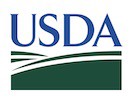USDA's Animal and Plant Health Inspection Service (APHIS) will conduct annual certification visits for offshore greenhouse facilities that wish to export Pelargonium spp. unrooted plant cuttings as part of the Minimum Sanitation Protocol for Offshore Geranium Cutting Production. Pelargonium sp. shipped from countries where Ralstonia solanacearum race 3 biovar 2 is known to occur must be exported from APHIS-approved facilities under this protocol. Interested facilities must meet the program’s minimum standards for greenhouse construction, security, production and sanitation, pest management, training, and recordkeeping. During the certification visit, APHIS will confirm that the offshore facility meets or exceeds the protocol requirements.
APHIS plans to physically visit and certify all interested offshore facilities during peak harvest times, completing visits before March 1, 2023, to certify facilities shipping during the 2022-2023 season. Participating facilities must cover the full cost of these certification visits, including travel, salary, benefits, and overtime. The facilities will provide these funds through a trust fund established through a signed cooperative service agreement.
APHIS established minimum sanitation protocols for offshore greenhouse facilities to keep Ralstonia solanacearum race 3 biovars 2 out of the United States. USDA’s Agricultural Bioterrorism Protection Act of 2002 lists R. solanacearum race 3 biovars 2 as a select agent because it could pose a severe threat to plant health. It causes brown rot in potatoes, Southern wilt of geranium, and bacterial wilt of tomato and eggplant. The pathogen can be transmitted by contaminated soil and water. People and equipment can move the contaminated soil and water between growing locations. It can also spread when infected plants, tubers, or cuttings are moved. By ensuring that all offshore Pelargonium sp. facilities meet or exceed minimum standards for greenhouse construction, sanitation, production, and pest management, APHIS can decrease the likelihood of R. solanacearum race 3 biovars 2 being introduced into the United States on plant cuttings.
If you are interested in scheduling a certification visit, please send official correspondence via the National Plant Protection Organization of the exporting country to APHIS by October 15, 2022. For questions or further information, please contact to Kara Spofford, Offshore Certification Specialist ([email protected]).
For more information:
U.S. Department of Agriculture
+1 202 720 2791
[email protected]
www.usda.gov
